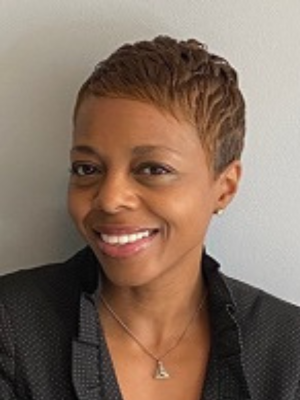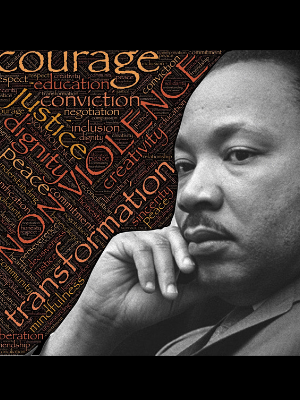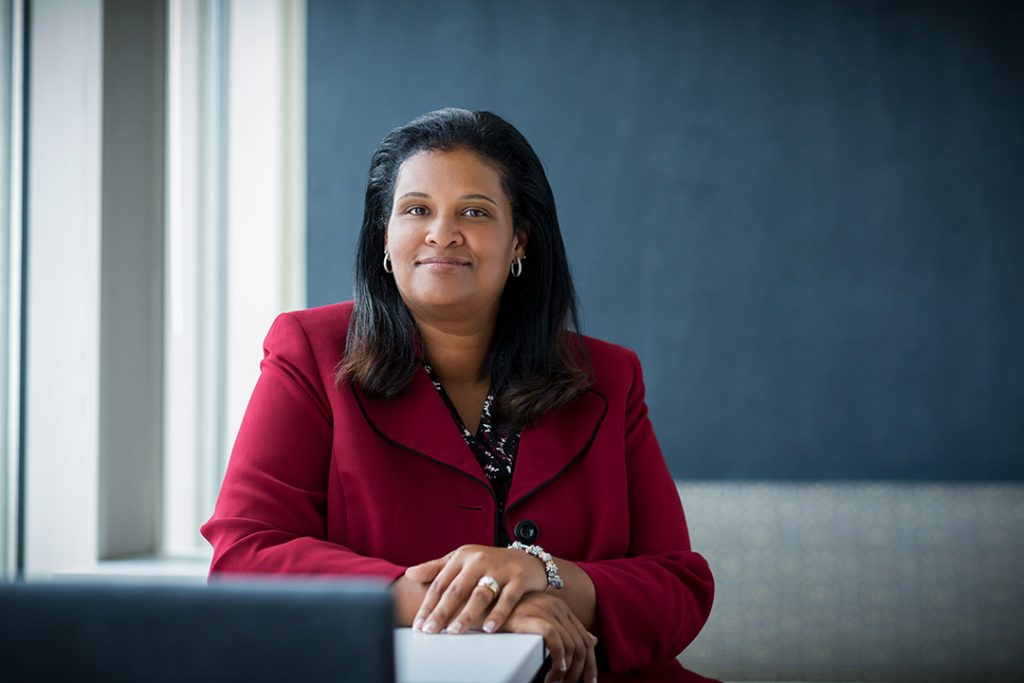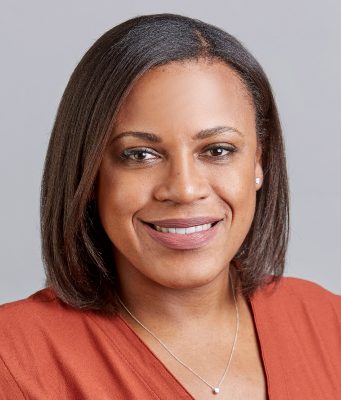 “For me, it all comes down to a genuine intellectual curiosity about people and places and cultures and things,” says LaShonda Fuselier. “As a banker, you’re building bridges and relationships, trying to understand people and their business, and being inquisitive enough to ask the right questions. In an international context, we’re taking that to a totally different level.”
“For me, it all comes down to a genuine intellectual curiosity about people and places and cultures and things,” says LaShonda Fuselier. “As a banker, you’re building bridges and relationships, trying to understand people and their business, and being inquisitive enough to ask the right questions. In an international context, we’re taking that to a totally different level.”
An Innate Passion for International Perspectives
That unique international aspect is what magnetized Fuselier to banking and what has kept her at Wells Fargo for over 18 years. Despite growing up in a small and rural town in Louisiana, her fascination with gaining international perspective started early. She took her first flight at 20 years old to Belgium. After graduating Dillard University with degrees in accounting and French, she interned in Paris and went on further to obtain her MBA from Emory’s Goizueta Business School – with an international exchange at HEC Paris.
“I love the need for a global perspective for us to be able to serve our clients. My clients are headquartered outside of the US in my current role, and I love working across borders and across cultures,” says Fuselier. “I love thinking about not just how these factors [cross-borders and cross-cultures] impact the business but also the individuals in the businesses.”
As a leader, Fuselier encourages new hires to not only execute on the “what” they are responsible for, but to also go beyond and consider the “why” (“why is it important?”) and “how” (“how can I add value/make it better?”). Embracing this herself, two years ago, while discussing the next potential stage of her career development, she pitched a new role to the Head of Corporate Banking – the one she presently finds herself in. This coming fall, she’ll host an inaugural Multi-National Corporations Conference as a means to be more consultative to Wells Fargo’s international client base.
Finance Is a Relationship Business
Growing up in a small town with hardworking parents, Fuselier was raised with a strong work ethic and sense of responsibility.
“Your word is your bond, my dad always said,” she shares. “I grew up in a family where if you say you’re going to do something, you’re going to do it. And if you want something, you’re going to have to put a little sweat into it.”
On top of trust-building, she’s recognized she possesses the important relational skill of making people feel comfortable: “You might think we’re talking finance. It’s numbers. But those are table stakes,” she says. “It’s a relationship business. People do business with people they’re comfortable with and they trust.”
Learning What Is In Your Control
Sometimes, it takes a difficult experience to learn how to be a leader.
While Fuselier has had many great managers, that has not always been the case. At times, she has even found herself offended by some past managers’ lack of leadership skills. Always committed to engaging professionally, she does surmise, she may not have engaged productively in one situation where she felt a past manager was not a great leader: “I have a tendency sometimes to stand on principle,” she says, “and so I focused on what I saw as the injustice about how this person was leading.”
But a colleague of hers with the same manager just focused on the work and ultimately had a better experience. As a result, she endeavored to engage more productively and constructively moving forward and it improved her experience.
“From that tough experience, I learned that you can’t control others. You can’t make someone a great manager,” she said, noting there will always be individual high-performers that are not as suited to be managers. “What you can control is everything that you do. You can control how you respond to the environment and use that response to make it better.”
Engaging and Empowering Others As a Leader
Today, Fuselier’s leadership is in part catalyzed by that experience. Fuselier has a clear view of what it takes to be a great leader and manager, which is a lot about encouraging and empowering her teams – in the same way some managers have done that for her. She advises mentees to “approach every assignment as an opportunity to develop and demonstrate your capabilities.” And as a leader, she prioritizes finding chances for others to do just that.
“It’s a practice I’ve developed to engage and empower others. One of the most rewarding aspects of being in leadership is when I have the opportunity to facilitate leadership opportunities for others and pull them out of their shell,” she says. “It feels really good when I get a chance to support somebody from behind and see them in the spotlight developing their skills, accomplishing things and being recognized.”
Fuselier likes to let her team take front and center where possible and be there in support. If someone mentions they don’t like public speaking, then they can expect to be invited to the next opportunity to push their comfort zone – and later on, they often express their gratitude for it.
“I subscribe to the theory that the best leaders – not only with words but through their actions – encourage and inspire others to achieve their best,” she says. “That is how some of the most influential leaders have impacted me in my career, and I aspire to have the same impact on others.”
Building Connection and Credibility
Many times, Fuselier has been the only woman in the room, person of color in the room, and certainly the only woman of color in the business room. Being culturally raised to believe that she had to be twice as good to earn half as much translated early on into over-preparation and focus. But it’s also gone further at times. Knowing that banking is a relationship business, LaShonda would try to find ways to connect with clients beyond the work. For example, with some clients she would research the highlights of the weekend’s local sport match – even if she had never been to that city.
“We talk within the community sometimes about assimilation and if it’s appropriate or inappropriate,” she says. “Even though I’m not a huge sports fan, this wasn’t an example of me losing my identify. Just like anyone who is new, you’re looking to connect and establish credibility, especially when you’re not like everyone else,” she says. “Once I could establish that connectivity and credibility, I felt like I could combine that with my unique perspectives to drive more meaningful dialogue and impact around the business.”
Once she gained credibility, it became easier to truly connect on a personal level.
“As I talked about things that mattered to them, they started to open up and we started to talk about things that reveal how much we have in common,” she says.
Fuselier has also learned to leverage being a unique voice in the room – whether on a transaction or an organizational decision. For example, she has been an advocate for diversity in recruiting. She also notes that being the only woman of color in the room at times means people will not forget LaShonda, and she’s willing to let that work for her, too.
Impacting Upon Diversity and Inclusion
Fuselier co-chairs the DEI counsel, is an advisor for the Black Connections Employee Resource Network (ERN) in EMEA, and is part of the steering committee of the WomenGoFar ERN.
This year, catalyzed with the idea from Judith Barry, Head of WomenGoFar, Fuselier created an initiative called Double Dimensions that tailors content and opportunities towards women of color within CIB.
“I’ve never been a ‘diversity person’ or someone who is solely responsible for diversity initiatives, but these are important, so I’m always eager to invest the time. However, what’s most important to me is that I’m not viewed as someone who is in my primary role solely because I am diverse,” says Fuselier. “I have always worked to demonstrate that I am a highly talented, hard-working, effective, successful banker who happens to be diverse.”
But with her and Wells Fargo’s passion for DEI, she has found the opportunity to develop and demonstrate her leadership, communication, collaboration and strategic planning skills beyond her client work while also building relationships with colleagues and leaders internally and on a global scale.
“It creates a real connection to the organization that keeps me going even on a day when you don’t get the transaction that you want or it’s not the best opportunity day,” she says. “It makes me feel like this is where I want to be.”
Fuselier’s gift of making people feel comfortable comes into its own in creating a permissive space for brave conversations.
“I think I give people the sentiment they can be themselves and say what they’re thinking. I’m not going to be offended,” she says. “I think people are often taken aback by just how open I am. So when I say ‘candor,’ which is an important value at Wells Fargo, I mean it – I’m going to be really open and so can you. That facilitates the type of environment where we can be collaborative and successful together.”
“Leadership is About Behaviors”
Some years ago, a mentor advised Fuselier to “own your position.”
“My younger mentality and work ethic was I’m going to execute to the best of my ability based on what they tell me to do and I’m not going to ask questions,” she reflects. “But that advice is about feeling empowered to do what you need to do to be successful and also to identify new opportunities and raise your hand to run with them.”
Tying back to creating the role she’s in now, Fuselier is a big advocate of catalyzing agency and ownership. It’s that notion that spurred her to create the Corporate Banking EmpowerHer women’s conference to foster professional development and greater engagement of women across the business. Now in its second year, the conference will be led by mid-level vice presidents and associates. More women will have the chance to step into leadership, develop their skills and be recognized for new contributions.
“You don’t have to be at a certain level or in a certain role to be a leader. Leadership is about behaviors,” she says. “It’s not about titles.”
Speaking of International Perspectives…
As at work, so it is at home: Fuselier’s entire family loves travel, culture and languages. In addition to her French, her whole family practices Spanish and her youngest daughter is studying Mandarin. They visit a few countries each year and like to seek out the cultural culinary delights – most recently they have been Egypt, UAE, Spain, France, Jamaica, Colombia, Costa Rica, the Netherlands, and Ecuador!
By Aimee Hansen




 For PwC’s Jeanelle Johnson, it’s the experiences gained from taking on new challenges and living overseas which have made her career path so rewarding.
For PwC’s Jeanelle Johnson, it’s the experiences gained from taking on new challenges and living overseas which have made her career path so rewarding.